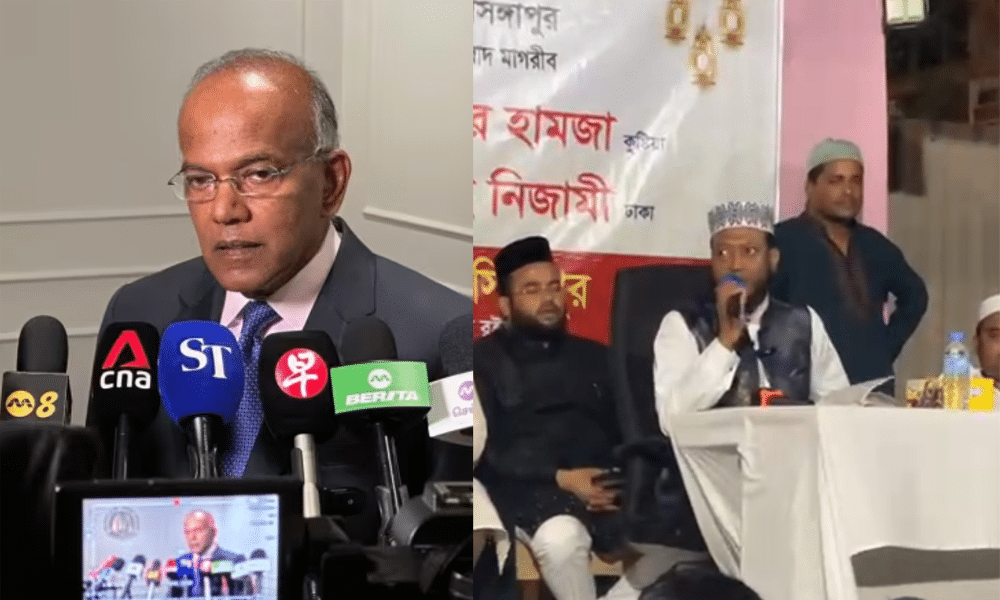The recent entry of Bangladeshi preacher Amir Hamza, who managed to deliver a sermon in Singapore before slipping out unnoticed, raises critical questions about the robustness of Singapore’s security protocols.
How did a man with a known history of extremist ties and inflammatory rhetoric manage to enter and exit the country undetected?
The Ministry of Home Affairs (MHA) has indicated that Amir Hamza used a passport with a different name, which appears to have been validly issued. This alone, however, should prompt a deeper examination of the security mechanisms at our borders.
Timeline of Events
9 August 2024
- Amir Hamza enters Singapore using a passport bearing a different name.
- On the same day, he delivers a sermon at the Lantana Lodge dormitory in Tuas. The sermon reportedly propagates extremist and segregationist teachings, which are harmful to Singapore’s communal harmony.
10 August 2024
- Amir Hamza leaves Singapore without raising any alarms or being detected by the authorities.
12 August 2024
- A police report is filed — likely due to a Reddit post on the same day, bringing attention to Amir Hamza’s sermon.
- Videos of the sermon surface on the Reddit post, highlighting concerns over how a radical preacher was able to enter Singapore and preach to a large group of migrant workers undetected.
21 August 2024
- MHA issues a statement acknowledging the incident. It confirms that the Internal Security Department (ISD) was aware of Amir Hamza and his extremist background but that he had entered Singapore using a different name.
- Minister for Home Affairs and Law K Shanmugam addresses the issue, noting that the passport used by Amir Hamza was validly issued but with a different name, which allowed him to slip through immigration undetected.
- The MHA indicates that investigations are ongoing and that strong action will be taken against Amir Hamza and others involved if they are found to have breached Singapore’s laws or posed a security threat.
Analysis and Concerns
The timing of these events raises several critical issues. The fact that Amir Hamza delivered his sermon on 9 August, yet the MHA was only alerted three days later after a police report was filed, is concerning. It suggests that without the police report, his presence and the dangerous content of his sermon might have gone unnoticed entirely.
This incident also brings to light potential vulnerabilities in Singapore’s immigration system.
The MHA somehow did not deny that Amir Hamza’s passport was legitimate, albeit with a different name, which raises a critical point: could our immigration system be compromised by something as simple as a legal name change in another country?
Singapore’s watchlist is only as effective as the data it contains. If a person can evade detection by altering their name, how reliable is our system in keeping potential threats at bay? Given that Singapore would not necessarily be informed of every deed poll executed abroad, this could be a significant loophole.
Furthermore, the Multi-Modal Biometrics System (MMBS), which has been implemented at ICA checkpoints since 2020, is supposed to enhance security by capturing travelers’ iris, facial, and fingerprint data. Yet, Amir Hamza managed to evade detection. Was there a failure to cross-reference his details with existing watchlists? The MMBS was designed as a critical line of defence, but in this instance, it appears to have been ineffective.
Another issue arises if Amir Hamza entered Singapore using a Bangladeshi passport. As per standard procedure, Bangladeshi nationals are required to apply for a visa unless they hold diplomatic, official, or service passports. Was a visa application processed in his case, and if so, how was it approved without raising any red flags, given his background? This potential oversight in the visa application process needs urgent addressing.
Finally, ISD’s apparent lack of awareness until after the sermon was delivered suggests either incomplete watchlist data or a failure in inter-agency communication. If Amir Hamza’s entry went unnoticed, it raises the question of how many others might have done the same.
As we await further details in the upcoming parliamentary session, where Members of Parliament are expected to pose tough questions about this incident, it is clear that this case highlights several significant gaps in Singapore’s security infrastructure. The authorities must provide comprehensive answers about how a known extremist was able to slip through the cracks so easily and what measures will be implemented to prevent such oversights from recurring.

